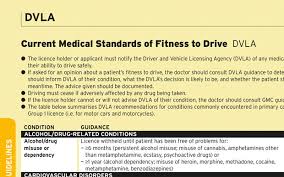Understanding DVLA Fines for Not Declaring Changes

The Importance of Accurate Vehicle Information
The Driver and Vehicle Licensing Agency (DVLA) plays a crucial role in maintaining accurate records for drivers and their vehicles in the United Kingdom. When drivers fail to declare changes such as a change of address, vehicle modifications, or ownership changes, they risk facing fines and penalties that can have serious implications.
Understanding the Law
According to the Road Traffic Act 1988, it is an offence not to inform the DVLA of certain changes. When you acquire a new vehicle, move house, or upgrade car specifications, it is your legal responsibility to update the DVLA. If these changes are not reported, the DVLA can impose fines up to £1,000 for failing to declare changes, which is often overlooked by many motorists.
Recent Developments
The DVLA has ramped up its enforcement efforts in recent months, particularly in response to the reported increase in driving issues during and post-pandemic. In 2023 alone, there have been over 40,000 cases of unpaid fines directly related to non-compliance with vehicle information regulations. The agency has highlighted a significant rise in address discrepancies, which complicates processes related to Vehicle Excise Duty (VED) and can affect road safety.
Common Scenarios Leading to Fines
Many drivers are unaware that failing to report minor changes can result in substantial fines. Common scenarios include:
- Changing Address: Not updating your address may prevent the DVLA from sending important documentation and impacting VED payments.
- Vehicle Modifications: Unreported modifications, such as changing the engine size or adding significant accessories, can alter your insurance status.
- Ownership Changes: Purchasing or selling a vehicle without transferring the details to the DVLA can lead to liability issues.
Consequences of Not Declaring Changes
Fines are not the only consequence for failing to declare changes; there may be further implications, including legal action in the most severe cases. Additionally, the information mismatch can lead to complications when attempting to insure a vehicle, as insurance companies may refuse coverage if the vehicle information does not match DVLA records.
Conclusion
In summary, the importance of keeping vehicle information accurate with the DVLA cannot be understated. As enforcement measures increase, drivers are urged to ensure they declare any changes promptly to avoid penalties. In an era where digital records are easily maintained, it is essential for all motorists to stay informed and proactive regarding their responsibilities. Ensuring compliance not only protects individuals from fines but also enhances overall road safety for everyone.









